MDIFW Blog
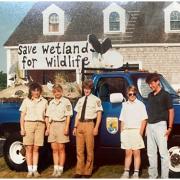
Reflections
A few weeks ago, I was on Cape Cod for my niece’s wedding and Jeff and I had a morning free before we had to be at the ceremony. I suggested we visit Monomoy National Wildlife Refuge, which was only about 20 mins away. We left the hotel before 7 and happily avoided the typical traffic one encounters on a Saturday in August on the Cape.

Illegal fish importation case provides insight into why you should care
In late 2019 the Maine Warden Service was contacted by fish and wildlife authorities from Oregon requesting assistance with an investigation of the Green Hill Garden Fish Hatchery in Eugene Oregon. The fish and wildlife officials from Oregon were looking into illegal fish purchases and sales and had identified several shipments from the Oregon hatchery to residents in Maine. Maine Department of Inland Fisheries and Wildlife (MDIFW) Game Wardens and Fisheries Biologists conducted a series of interviews to determine the origin, species, and the current whereabouts of any imported fish and whether or not proper permits were obtained from MDIFW prior to the importation or stocking of the fish.
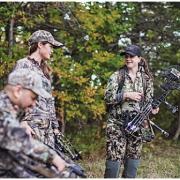
Deer Management in Maine
The state of Maine is a vast region of forested landscapes and unique ecosystems supporting a rich diversity of wildlife and endless opportunities for outdoor recreation. In the last two years, Mainers have turned to the outdoors more than ever, seeking solace through fresh air and fresh food from the field.
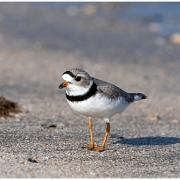
It Takes a Village
On the heels of another record-breaking year for piping plovers in Maine, this endangered beach-nesting shorebird had more pairs (125) and fledged chicks (213) on Maine’s beaches since intensive monitoring began in 1981. MDIFW is mandated to preserve, protect, and enhance the inland fisheries and wildlife resources of the state. This can be difficult to attain for a species vulnerable to climate change, sea level rise, predation, and recreating humans and dogs.
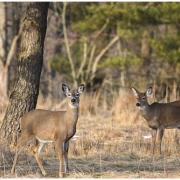
The Importance of Regulated Doe Harvest
While you can’t have a deer population without bucks, it is the does (female deer) carrying and raising offspring that drive population growth. Regulated doe harvest is a cornerstone of deer management and is the primary tool used by state deer managers to control or direct deer population growth.
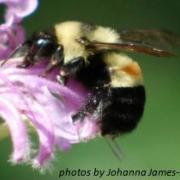
BEE on the Lookout for Rusty Patched Bumble Bees!
Maine Department of Inland Fisheries and Wildlife is looking for rusty patched bumble bees and you can help!
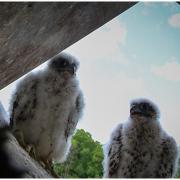
Checking in on Peregrine Chicks
The keen eyes of one of the many MDIFW peregrine falcon surveyors, Trish Berube, and the partnership of Chinburg Properties, led to the discovery of a female incubating eggs in a 14-year-old nest box on a historical building in Lewiston. The exact location of this nest box is being kept private at this time to limit disturbance to the young until they fledge early summer.
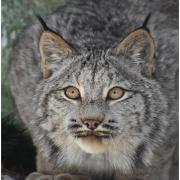
Lessons from a Lynx
Often referred to as the “Gray Ghost of the North,” due to its perceived elusiveness, the Canada lynx is more fittingly described as calm, aloof, and surprisingly tolerant of human presence. Their long legs and thick-furred paws act like snowshoes to hunt in deep snow and their eyes have mirror-like cells allowing an increase of light available for the lynx to see at night. In addition to these adaptations, the lynx has a keen sense of hearing and smell, making them exceptional predators and equipped at living in deep snow environments.
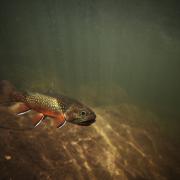
Fishing Responsibly for Trout during Warm Weather
As we emerge from the challenges brought on by the pandemic, with a renewed and growing interest in outdoor recreation, including fishing, we find ourselves in another year of low flows and water levels due to the very early onset of a drought; the second year in a row. Most areas of Maine are suffering from below-average rainfall and lower than normal water conditions. Anglers are reminded to consider these conditions and take some personal responsibility when fishing for coldwater fish species such as trout and landlocked salmon.
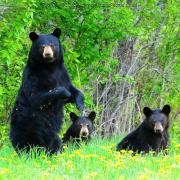
Be Bear Wise
As the days grow longer, wildlife and humans alike emerge from their homes and dens to greet the warm weather. For many humans, we emerge with some extra “fluff”; we’ve exercised less, stayed inside more, eaten all the delicious desserts over the holidays, and gone through a long phase that I like to call “bulking season.” For our furry friends from bats to bears, winters can be more challenging; presenting little food, frigid temperatures, and the need for exceptional adaptations to ensure survival.
Keep In Touch!
Enter your email or mobile number to receive the latest news from MDIFW.